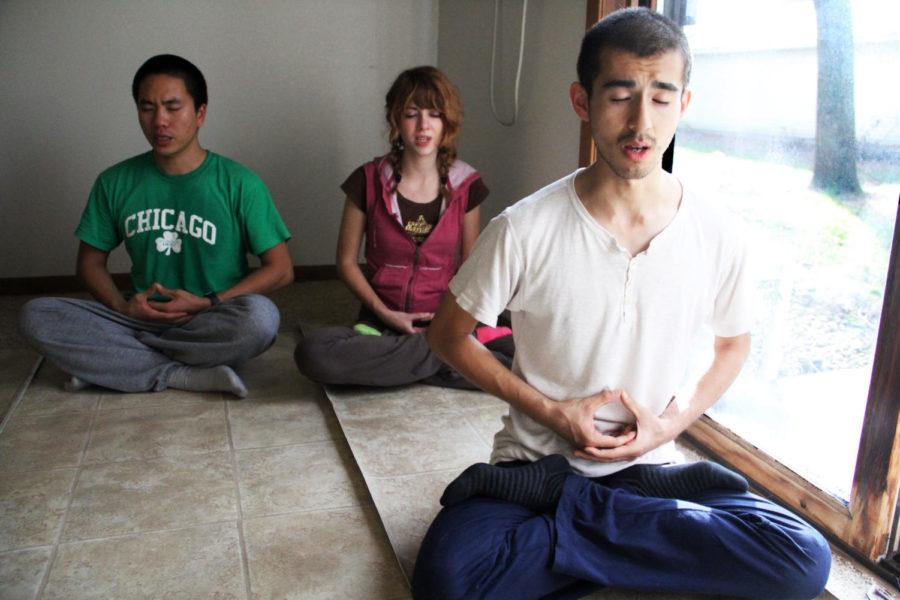Dizang-Qi club teaches principles of Buddhism
October 29, 2012
The vast array of student organizations available at Iowa State expanded this year to include the Dizang-Qi Buddhism club. The group has served both regularly practicing Buddhists and those simply looking to indulge their curiosity about the faith.
Sheng Ran, graduate student in physics, came to the United States from China in pursuit of a college degree. As an established Buddhist, he turned a desire to share his faith into the Dizang-Qi club.
Ran sees the primary purpose of the club as education, not conversion.
“We don’t push people to become Buddhists,” Ran said. “It’s a spiritual practice.”
Dizang-Qi is a term for a seven-day spiritual retreat commonly used in China to introduce participants to Buddhism. Although the ISU club does not have seven-day retreats, its meetings revolve around the same principles introduced in Dizang-Qi.
Karly Michl, junior in business management, has explored many religions but lacked a connection with any particular denomination. Her interest in Buddhism developed during high school, but Michl had no outlet for discussion.
Michl said she does not consider herself Buddhist but has seen benefits from learning more about the faith.
“It made me feel like my life was more structured even though I don’t believe [in Buddhism],” Michl said of the religion’s meditation. “It still makes me feel better.”
The club meets every Saturday in the Memorial Union and has also had two-day retreats periodically. Michl attended one retreat and said she found it very relaxing.
“I feel like I have learned a lot,” she said. “It’s really opened my mind.”
The Saturday meetings are divided into multiple sessions, lasting about four hours in total. One component is meditation, which is central to Buddhist practice and can take many forms.
“The point of meditation is calming the mind,” Ran said.
Prostration, walking and chanting are all types of meditation practiced by the Dizang-Qi club.
Another part of the meetings is the study of basic Buddhist principles.
“These are the foundation,” Ran said. “If you want to be a real Buddhism practitioner, you have to know these first.”
Ran has encountered some misconceptions about Buddhism in the United States.
“Many Western people treat it like philosophy,” Ran said. “There are many people who are interested in this, but they sort of need more guidance.”
Ran emphasizes the need to mix practice with study. Participants learn ways to apply Buddhist principles to daily circumstances.
“Sometimes we know what is good and what is bad, but without practice, we cannot do it,” he said.
Michl said she has made an effort to put some of the concepts she has learned into practice.
“It is a really big eye-opener,” Michl said. “It gives you good things to practice and good things to concentrate on towards how you treat people.”
The Dizang-Qi club focuses on Mahayana Buddhism, one of many types of Buddhism practiced around the world.
“The forms are different, but the call is the same,” Ran said.

















